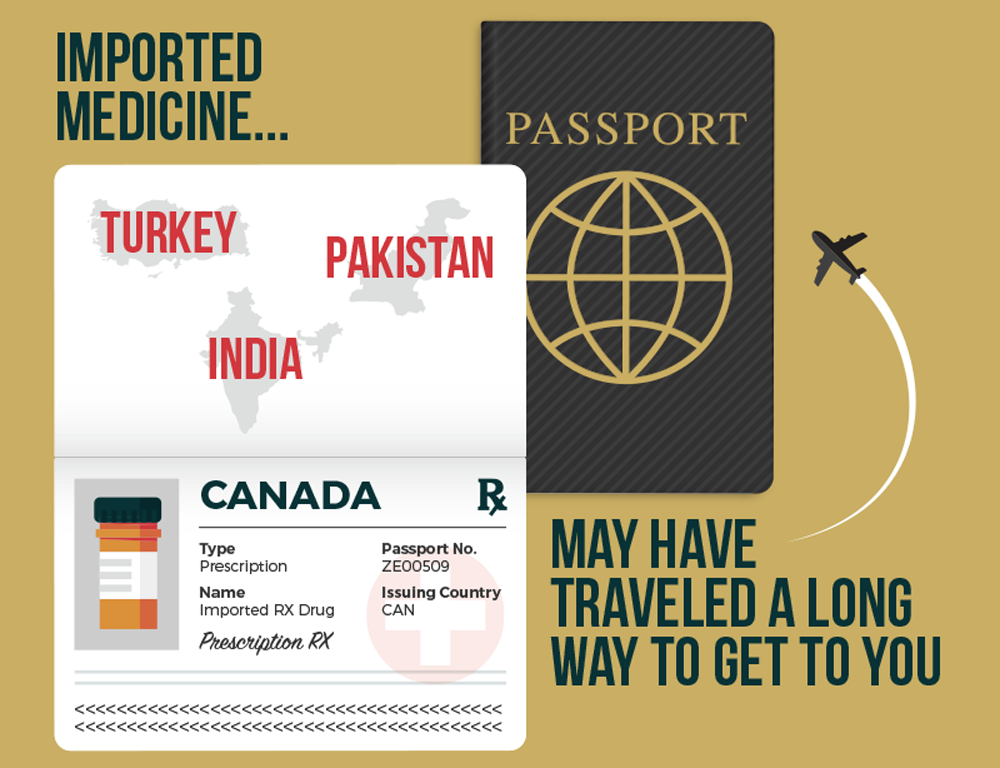
As some U.S. senators work on overturning the ban on individuals importing prescription drugs, a Denver-based family therapist is watching developments in Congress with particular interest.
Ali Schroer fell victim to what she believes was a poisonous substance after buying drugs online to combat an allergy. For a time, she could not understand why she was suffering severe migraines and gastrointestinal problems. Then, with some advice from her sister, she identified the drugs as the culprit and stopped taking them. Within six to eight weeks, all her ailments disappeared.
Subsequently, she has concerns about moves in Congress to loosen restrictions on the importation of drugs. Sen. Bernie Sanders (I-VT), a longtime champion of importing medication, introduced a bill in February that would allow medicine imported from Canadian pharmacies. Sen. John McCain (R-AZ) has also introduced a bill to allow for drugs to be imported from Canada.
“My concern is based on my own experience,” Schroer told Patient Daily in an email. “While buying cheaper medicines from a Canadian online pharmacy sounds good, the reality is that there is no way for a consumer to know what you get is safe.”
And because the internet is worldwide, drugs purchased on the Web can come from anywhere, she said.
"Indeed, (the U.S. Food and Drug Administration) found that 85 percent of the medicines sold by Canadian online pharmacies come from 27 countries other than Canada,” Schroer said.
There is no good way to “police” the internet because U.S. jurisdiction stops at the border, Schroer said, adding that the FDA and Health Canada have both said they cannot guarantee the safety of medicines bought from foreign sources online.
“Even if the U.S. government tried to create a safe list of Canadian sites, I worry that consumers wouldn't ever use that list,” Schroer said. “We all would just do a search for e.g., 'buy Canadian medicine online.' And that's what's so dangerous; the vast majority of online pharmacies – including those on Page 1 of search results that claim to be Canadian – are not real pharmacies that sell Canadian medicine. ... And to make matters worse, consumers can't tell the difference.”
Schroer's sister, Libby Baney, a lawyer with expertise in health and food safety, was moved to set up the Alliance for Safe Online Pharmacies as a result of her sister’s experience. Likewise, drugstore owners are fighting moves by Congress to allow medicines to be imported into the United States for retail sale.
Senators are pushing on a number of fronts to allow the importation of drugs from Canada, arguing that this could save patients substantial amounts of money. In January, Sanders tabled an amendment to a budget resolution to permit the importation of drugs. It was defeated 52-46, with most Democrats and some Republicans voting in favor.
McCain, who voted in favor of the amendment, has introduced the Safe and Affordable Drugs from Canada Act of 2017. It is with the Senate Committee on Health, Labor, Education and Pensions.
But 170 organizations co-signed a letter authored by the San Francisco-based Partnership for Safe Medicines, which urges Congress to oppose drug importation.
John Schall, chief executive of the Caregiver Action Network, one of the groups that signed the letter, said, "Patient safety is our highest priority."
"Right now there is no guarantee that imported drugs are safe and effective," Schall told Patient Daily. "Even some drugs from Canada have been found to be produced in India or other countries and have been found to be impure."
Most pharmacy owners are opposed to imports, citing consumer safety as the main reason.
Chris Krese, a spokesman for the National Association of Chain Drug Stores, told Patient Daily his organization “advocates for policies that are vital for patient health, wellness and safety, as well as for health care affordability and access."
“NACDS does not believe that consumer safety can be ensured in a system that allows for the personal or commercial importation of prescription medications,” Krese said in a statement via email. “We have outlined for Congress ways in which importation undermines the prescription drug safety net, increases the chances of counterfeiting, limits the communication of recalls and does not facilitate a consumer's ability to talk with a pharmacist about the medications.”
Krese added, “At the same time, NACDS members implement and advocate for policies that are consistent with the goal of expanding access to prescription medications in safe, affordable and effective ways."
His organization was moved to write a letter to all members of the Senate ahead of January's vote.
In the letter, the NACDS cited the position of the FDA, which has stated that it “cannot ensure the safety and effectiveness of products that are not FDA-approved and come from unknown sources and foreign locations, or that may not have been manufactured under proper conditions."
It added, “NACDS shares the goal of reducing the cost of prescription drugs, including through the promotion of generic drugs as safe, cost-effective alternatives for many patients. In fact, increasing the use of generic drugs is one of the most effective ways to minimize prescription drug costs."
But supporters of importation argue that Canada’s approval process for drugs is as stringent as the FDA's.
McCain’s bill would require the FDA to allow a “personal importation program.” This would allow individuals to import a 90-day supply of their medicines from Canadian pharmacies.
Separately, McCain, along with Sens. Amy Klobuchar (D-MN) and Chuck Grassley (R-IA), wrote to Health and Human Services Secretary Tom Price, reminding him that the FDA has the authority to allow the importation of drugs in certain circumstances if the secretary finds they will “pose no additional risk to the public’s health and safety” and would result in cost savings.